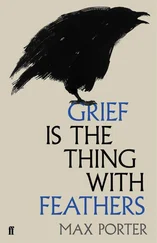The calls came in by telegraph from the police headquarters. The job was always exciting, especially at night. When they were working, Gob and Will slept in a room over the ambulance stables, a bell above their bed. When it rang it also caused a weight to fall which lit the gas. They would stumble around, blinking in the light, grabbing for their coats, and then rush to the ambulance. The harness, saddle, and collar were suspended from the ceiling, and dropped into place automatically at the sound of the alarm. Not more than two minutes ever passed between the time the bell sounded and the time they rushed out of the stable.
Will handed the flask at Gob, who declined it, saying they would not have enough when they got to their patient. In a box beneath the seat were blankets and splints, tourniquets and bandages. They had a straitjacket and a stomach pump and a copy of Gross’s Hints on the Emergencies of Field, Camp, and Hospital Practice. They had a medicine chest with emetics and antidotes and morphine. They never failed to lack something, however, when they arrived at the scene of misfortune.
Will put his hand out to catch the swirling snow as they sped along down Broadway. This was their third call of the day. Earlier, a junk dealer had been crushed by her own cart when it tipped and fell on her at the foot of Roosevelt Street. Before that, a woman getting off the rear platform of a Third Avenue horsecar had been run over by a sleigh. Both those patients had lived.
The gunshot woman died cursing her sister, though they cared for her wound as best they were able, covering it with lint saturated in balsam of Peru, and enlarging the exit wound so it could drain properly. Back at Bellevue, they saw her set up in a bed in Ward 26, and made her comfortable with brandy and morphine. Will wrote down her last words, Damn you Sally. He had a collection of those. He wrote them in inch-high letters on fine creamy white paper: Is it over?; Do you hear the pretty music?; I would rather live; No; What help are you?; Tell my horse I love her.
When they were not at the ambulance house, they were at Gob’s house. So far, Will had made what seemed to him to be merely decorative contributions to the construction. He tied last words to strings and hung them from the body of the machine, or he fixed death masks to it, and Gob made a fuss over Will’s efforts, like a doting, overpraising parent. Will felt ignorant and useless, but his education had begun in earnest. He had thought Gob had a masterful knowledge of medicine, but now he was coming to believe that he had a masterful knowledge of everything.
One day in April, he had Will follow him through the house with a wheelbarrow. Gob took books from where they lay and threw them in. “Oh yes,” he’d say, picking up a volume, “you had better be familiar with this, if we are going to make any progress.” Each title was more dismaying to Will than the last: Optics, Acoustics, Thermotics, Stability of Structures, Intellectual and Ethical Philosophy, Higher Geodesy, Analytical Geometry of Three Dimensions, Calculus of Variations. Then there was all the Aristotle: eight books on physics, four on meteors, thirteen on metaphysics, two on generation and destruction. “What am I forgetting?” Gob asked as they stood in the library, the wheelbarrow already overflowing. He looked thoughtful for a moment, then said, “Of course, the Renaissance Magi!” He scurried around the room, plucking books from the shelves. Will looked at the authors’ names, men of whom he had never heard, books that looked to be a hundred years old or more. Paracelsus and Nettesheim and Della Porta, Albertus Magnus and Mirandola and Dr. Dee, Gob tossed them about without a care for their ancient bindings and brittle pages.
“You will learn!” Gob kept saying, but days spent reading about Determinative Mineralogy or the Seven Names of God made Will suspect that Gob’s faith was misplaced. He would put his face between his knees and have a spell of worry. “It’s too hard, Jolly,” he’d say, because Jolly was always leaning over his shoulder when he read. Jolly would shake his head and smile and wag his finger, as if to scold him for his despair. Will took to reading in the glass house. Inside, it was pleasant and warm in the spring, but he went in even after summer came, and sweat ran off his nose to drum on the pages of Della Porta’s Celestial Physiognomy , because it seemed to him that his brain was more agile in there, and it restored some of his faith in himself, since it was proof that he could, after all, build something.
It was in the glass house that Will got what he considered to be his first good idea. He was struggling with a simple book of algebra, wearing nothing but his pants because it was so hot. Sometimes when he got frustrated he would abuse Gob’s precious books. Usually he would imagine a face for them, a mocking face embossed on the leather cover, with a snide mouth that he would punch and punch until his fist ached. He did that for a while, staining the leather with his sweaty hand, and finally threw it against a wall of the house, where it knocked out a plate that fell on the rooftop but miraculously did not break. He took up the book gently (he was always kind and loving to them after he abused them) and went outside. He picked up the plate and considered it, and holding the book in one hand and the plate in the other, he had his idea. Jolly stepped up from behind him, shivering with excitement. He seemed to know what Will was thinking. Will closed his eyes and imagined a great shield of negative plates that could be placed over the engine, with a bright light positioned above them, so that they rained down images on it, filling it with lost lives.
Will thought it was a bug hurrying across his cheek. They came out of his walls in the summer, fat black moist-looking things that he doused with acid to kill them. Sometimes they crawled on him while he was sleeping, but when he woke he saw that the tickling pressure on his face was not from little feet but from a wing. She moved them just like fingers, the not-feathers. The angel looked earnestly into his face, closed her eyes, and trembled as if with a sob. Her wings made a noise like broken glass shaken in a bag. She opened her mouth again, and to Will’s great surprise, words came out of it.
“Creature,” she said, “why do you participate in abomination?”
In August, Will got another invitation to dinner, this one from Gob’s mother, Mrs. Woodhull, who was recently arrived in New York. She’d set up her house in Great Jones Street, not with her son. “I wouldn’t let her live with me,” Gob said, when Will asked why she didn’t stay in Fifth Avenue. “Not in ten thousand years.”
“Is she a difficult person?” Will asked, thinking of his own difficult mama.
“Yes. And she is always surrounded by difficult people. But you can judge her for yourself tonight. Oh, yes. I like that. My friend, you are a genius of building!” They were installing the images over the engine. Gob had jumped up and down and hugged himself when Will showed up at his friend’s house with a rented cart full of plates.
“I like it too,” Will said. They were hot and filthy from their work. Now the machine would shelter under a giant flower of picture negatives. It was late in the day, but the sky was still bright outside, and the plates they’d installed were gently lit.
“We need a brighter light,” Gob said. “Maybe the brightest light ever.”
They kept working until it was almost time for dinner. Will might have kept going and going with it — he was filled with the same feeling as when he’d built the glass house, a mixture of trepidation and certainty, because he knew he must build but feared what he was building — but he noticed the time and excused himself to go home and change his clothes. He was an hour late when he arrived at Number 17 Great Jones Street. A man fully as big as Will, but fatter and hairier, opened the door.
Читать дальше












